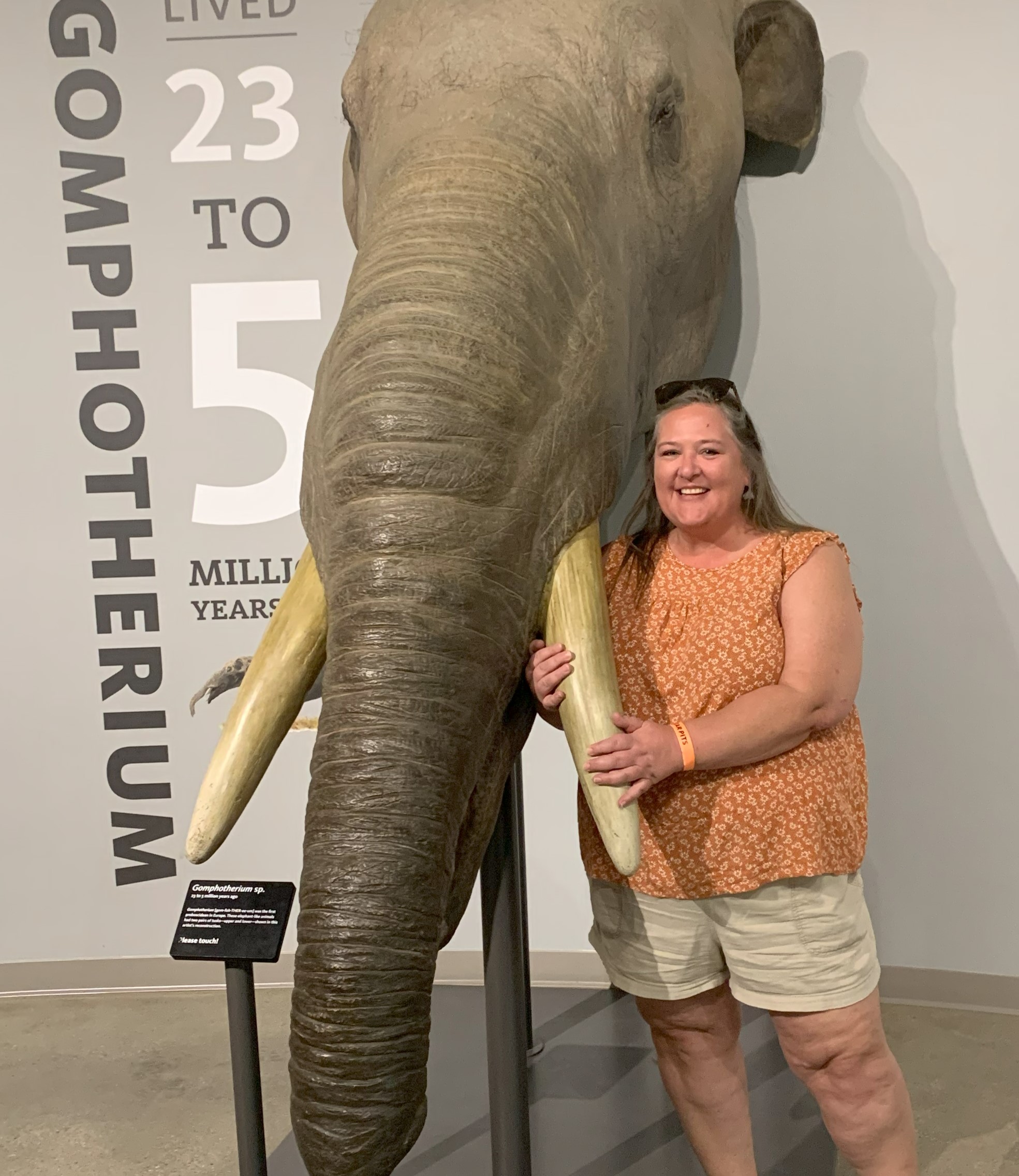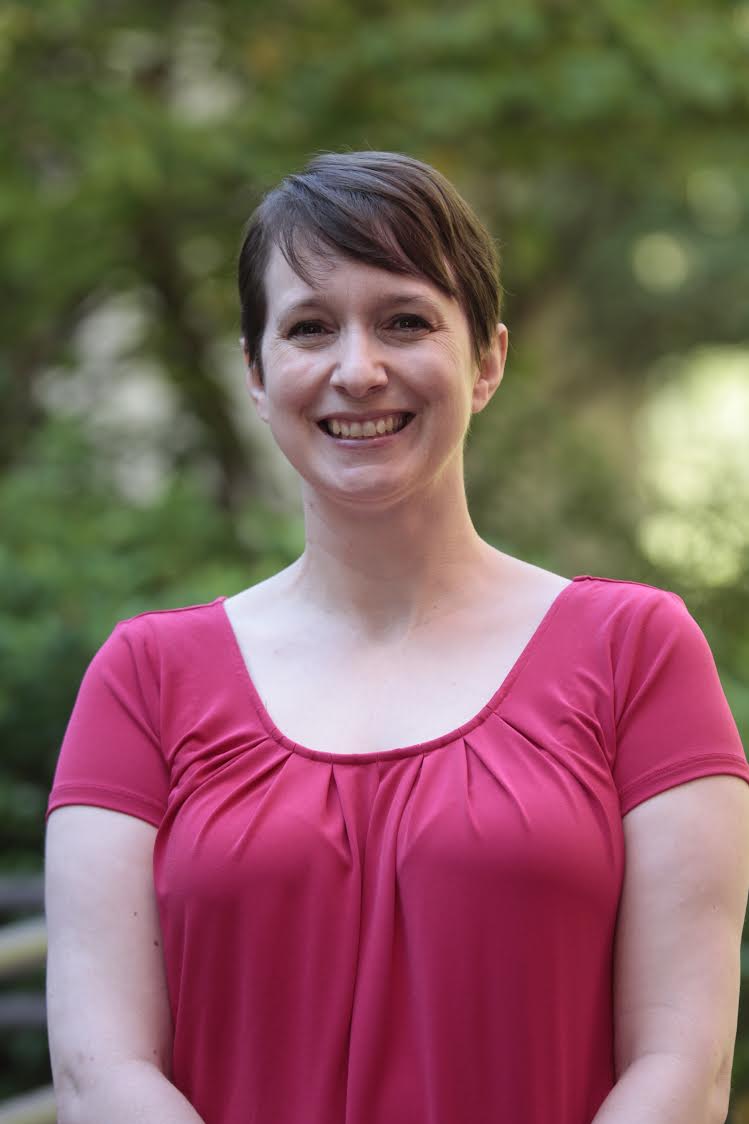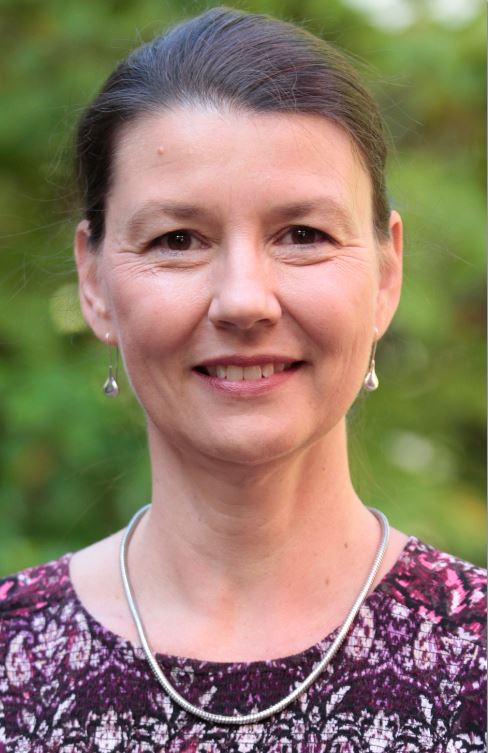Post-Baccalaureate Initial Non-Degree Certification Early Childhood Education
*This program has been deactivated, effective Fall 2025. Please see our NEW Master of Arts in Teaching in Elementary Education by clicking here!
The University of West Georgia's Post-Baccalaureate Certificate in Early Childhood Education program is designed to provide you with a comprehensive understanding of early childhood education and to prepare you for licensure in the state of Georgia. The program is for individuals who already hold a bachelor's degree who want to become a certified Pre-Kindergarten through Fifth grade school teacher.
For more information, please see the Academic Catalog.
The University of West Georgia's Post-Baccalaureate Certificate in Early Childhood Education program is designed to provide you with a comprehensive understanding of early childhood education and to prepare you for licensure in the state of Georgia. The program is for individuals who already hold a bachelor's degree who want to become a certified Pre-Kindergarten through Fifth grade school teacher.
Career Opportunities
Link to Additional Career Information:
https://www.buzzfile.com/Major/Education
External Resource
Program Location
Carrollton Campus
Method of Delivery
Face to Face
Accreditation
The University of West Georgia is accredited by The Southern Association of Colleges and Schools Commission on Colleges (SACSCOC).
Credit and transfer
Total semester hours required: 66
Graduate students may be able to reduce their cost through prior learning, previous degrees earned at UWG, or transfer credits. We have created a tool to help students estimate their tuition costs.
This program may be earned entirely face-to-face. However, depending on the courses chosen, a student may choose to take some partially or fully online courses.
Save money
UWG is often ranked as one of the most affordable accredited universities of its kind, regardless of the method of delivery chosen.
Details
- Total tuition costs and fees may vary, depending on the instructional method of the courses in which the student chooses to enroll.
- The more courses a student takes in a single term, the more they will typically save in fees and total cost.
- Face-to-face or partially online courses are charged at the general tuition rate and all mandatory campus fees, based on the student's residency (non-residents are charged at a higher rate).
- Fully or entirely online course tuition rates and fees my vary depending on the program. Students enrolled in exclusively online courses do not pay non-Resident rates.
- Together this means that GA residents pay about the same if they take all face-to-face or partially online courses as they do if they take only fully online courses exclusively; while non-residents save money by taking fully online courses.
- One word of caution: If a student takes a combination of face-to-face and online courses in a single term, he/she will pay both all mandatory campus fees and the higher eTuition rate.
- For cost information, as well as payment deadlines, see the Student Accounts and Billing Services website
There are a variety of financial assistance options for students, including scholarships and work study programs. Visit the Office of Financial Aid's website for more information.
General
Students cannot enroll in Professional Education courses until they have been admitted to the Teacher Education Program.
Block I
- CEPD 4101 Educational Psychology
- ECED 3282 Practicum I
- PHED 4650 Health & Physical Act in Elem School
- MATH 3803 Algebra for Teachers I
- ECED 3214 Explor Act in Music & the Fine Arts
- READ 3251 Children's Literature
- ECED 3271 Integ C, I, & CM for PreK-5
- MATH 3703 Geometry for Teachers
- ECED 4261 Tchng C&P: Soc Stud Ed
- ECED 4262 Tchng C&P: Science Ed
- ECED 4263 Tchng C&P: Math Ed
- ECED 4283 Practicum II
- READ 3262 Tchng C&P: Rdg Ed
- ECED 4251 Asses & Corr Math Ed
- ECED 4284 Practicum III
- MATH 4713 Probability and Statistics
- READ 3263 Tchng C&P: Literacy Ed & Process Writing
- READ 4251 Assess & Correction Rdg Ed
- SPED 3715 Inclusive Clsrm: Diff Instruc
- ECED 4286 Internship
- ECED 4289 Internship Seminar
- MEDT 3402 Integrating Tech into Curric
An introduction to the psychological theories and principles applied to the classroom. The course will include aspects of learning, motivation, classroom management, and assessment. Emphasis will be placed on developmentally designed instruction for all students.
An introductory course that surveys methods and activities to teach fundamental skills in movement/dance/drama, art and music in the early childhood/elementary curriculum. Field experience required. Admission to Teacher Education. Course Equivalent ECSE 3214.
Students will examine theories and models for designing curriculum, instruction, and classroom management in Pre-K through fifth grade classrooms. Students will also observe and apply these theories and models during a field based experience.
Students are placed in a designated early childhood/elementary site. Requirements include observing children and planning and implementing learning activities with the guidance of a qualified supervisor. Course equivalent ECSE 4783.
Overviews development of acquisition of mathematical concepts. The assessment/correction process is examined. Teaching strategies appropriate to children with learning difficulties are described. Individual assessment and analysis of a particular child's mathematical problems, including teaching to this analysis are developed in case study form. Current research on teaching mathematics to children with special needs is examined. Knowledge of teaching strategies and the assessment/correction process will be applied during field experience. Must be taken concurrently with ECED 4284, READ 3263 and READ 4251 or with advisor approval.
Students will examine the current content and methodology of social studies education for young learners (grades P-5). Students will design and implement learning experiences that incorporate the knowledge, skills, and attitudes appropriate for an elementary social studies program. Course equivalent ECSE 4761
Students will examine content, methodology, skills, and materials used to teach science to children in grades P-5 by means of course discussions and assignments, field placements/assignments and course readings. Emphasis will be placed on developmentally appropriate practices and integration with mathematics and other appropriate subject areas. Must be taken concurrently with ECED 4261, ECED 4263, ECED 4283 and READ 3262 or with advisor approval.
Mathematics education content, methods and materials which are appropriate for the cognitive development of the young child from Pre-K to Grade 5 will be investigated. Students will apply knowledge of content, methods and materials during field experience. Must be takenconcurrently with ECED 4261, ECED 4262, ECED 4283 and READ 3262 or with advisor approval.
Students are placed in a designated early childhood/elementary site. Requirements include observing children and planning and implementing learning activities with the guidance of a qualified supervisor. Must be taken concurrently with ECED 4261, ECED 4262, ECED 4263 and READ 3262 or with advisor approval.
Application for field experience required prior to enrollment. Students are placed in a designated early childhood/elementary site. Requirements include observing children and planning and implementing learning activities with the guidance of a qualified supervisor.
Students will be involved 15 weeks (one semester) in a full-time, supervised and directed classroom setting. Application to field experience required prior to enrollment Must be taken concurrently with ECED 4289; a practicum/intership fee will be charged.
Designed to engage interns in a critical reflection of issues, topics materials and skills appropriate to their professional development and teaching experience during their internship. Will also serve as a capstone experience for satisfying exit requirements of the program. Must be taken concurrently with ECED 4286 or ECED 4288.
(Non-credit for mathematics major or minor.) Special emphasis for teachers of grades P-8. Logic; real numbers; basic and transformational geometry; measurement, including the metric system; problem solving; methods and materials for teaching mathematics at the P-8 level. A continuation of MATH 2703.
(Non-credit for mathematics major or minor.) Special emphasis for teachers of grades P-8. Broadens understanding of the fundamental concepts of algebra, with particular attention to specific methods and materials of instruction. Special emphasis for teachers of grades P-8.
Advanced topics in the theory of ordinary differential equations. Topics include existence theory, linear systems, phase plane analysis, asymptotic behavior of solutions, stability of linear systems, Lyapounov's second method and applications.
An overview of how technology can play a role in the teaching and learning process; including digital citizenship, digital learning experiences, and assessment. In addition, aspects related to digital learning activities, assistive technology for students with mild disabilities, and implications of cultural/linguistic diversity for language, technology, and educational programs.
This course provides students with the knowledge and skills necessary for teaching health and integrating physical activity in the elementary school curriculum. This course is designed for early childhood education majors.
This course explores the essential role that children s and adolescent literature plays in literacy development, with a focus on selecting high-quality literary and informational texts for diverse learners. The course emphasizes the application of evidence-based instructional approaches that introduce students to a wide range of high-quality literature that supports students in their learning about themselves, the world around them, and their place within a global society. Students will engage in a field placement to gain practical experience in implementing these strategies in real-world classroom settings.
This course provides a holistic introduction to the foundational skills of reading and evidence-based methods and assessment strategies essential for effective reading instruction in PK-2 classrooms. Emphasizing phonemic awareness, phonics, decoding, fluency, vocabulary, and comprehension along with comprehensive instructional strategies, this course integrates the science and art of teaching reading. This is the first course in a two-part series that prepares students for Reading Methods and Assessment II. Field experience is required for observation of and the hands-on application of these principles.
This course explores the foundational skills and developmental stages of writing, emphasizes the integration of reading and writing, and engages students in authentic writing experiences. The course examines effective writing instruction practices, approaches to assessment, and the connections between language arts components while considering the diverse needs of learners.
This course equips candidates with the knowledge and skills to instruct and assess elementary students' reading abilities, emphasizing the development of reading comprehension and speaking and listening skills. Students will learn to analyze assessment results, identify reading strengths and weaknesses, and develop tailored instructional strategies to support students literacy development. This course is the second in a two-course sequence that builds upon the concepts learned in Reading Methods and Assessment I (PK-2). Field experience is required to offer observation and application of course concepts.
Study of characteristics, identification and assessment of exceptional children and youth across age ranges and levels of severity, including individualizing instruction in inclusive classrooms. 'Best' ranges and levels of severity, teaching practices for this population also will be examined. Designed for non-special education majors. Students must earn a grade of "B" or better in SPED 3715 or department approved alternative to meet the special education requirement of Georgia House Bill No. 671 and be recommended for educator certification in Georgia. The grade requirement of "B" or better is effective 07/01/2019 for courses completed on or after that date.

Stacey Britton, Ph.D.
Associate Professor & Assistant Department Chair of ESCER
Jennifer Edelman, Ph.D.
Associate Professor
Rebecca Gault, Ph.D.
Associate Professor


Janet Strickland, Ph.D.
Associate ProfessorGuidelines for Admittance
- All graduate applicants must complete the online Graduate Application. A current application fee of $55 is required.
- Applicants should also review the Graduate Studies Website for individual program specific requirements and tasks that must be completed prior to admission. See Graduate Studies Application Process.
- International applicants are subject to additional requirements and application deadlines. See Procedures for International Students.
- Official transcripts from a regionally or nationally accredited institution are required and should be sent directly to the UWG Admissions Office.
Program Specific Admittance Guidelines
*This program has been deactivated, and is no longer accepting applications. Please see our NEW Master of Arts in Teaching in Elementary Education by clicking here!
- Create a Graduate Account and complete the Graduate Application online at westga.edu/beginwest.
- Submit official transcripts from all schools attended. A GPA of 2.7 or higher on your last conferred degree is required.
- Submit GACE Ethics for Educators (test 360) results.
Application Deadlines
Specific Graduate Admissions Deadlines are available via the Graduate School
* Application, app fee, and document deadline
See The Scoop for more specific deadlines.
Admission Process Checklist
The Graduate Studies Application Process checklist is available here.
Contact
Graduate Admissions
graduate@westga.edu
678-839-1393
Specific Graduate Admissions Deadlines are available via the Graduate School
* Application, app fee, and document deadline; Dates may vary for Readmit, Transfer, and Transient students.
Specific dates for Admissions, Financial Aid, Fee Payment, Registration, Start/End of Term Dates, Final Exams, etc. are available in THE SCOOP.
To graduate knowledgeable, innovative professionals that are committed to educational equity and have the essential skills and knowledge needed to become licensed teachers int he state of Georgia.
